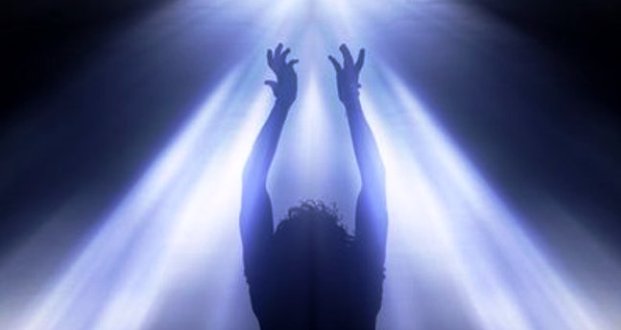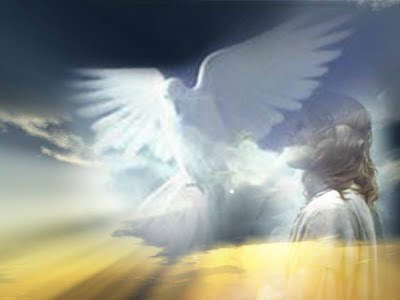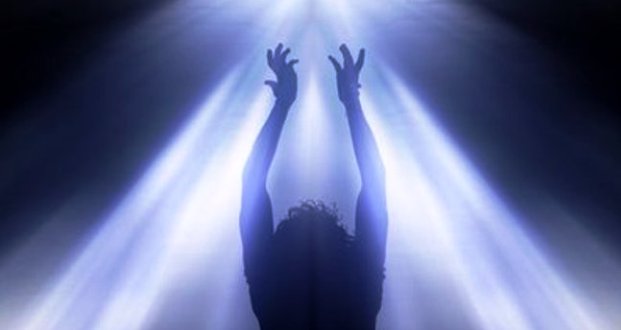The Holy Spirit – The Means By Which Jesus Remains A Vital Living Presence Today

It must have been some time in 2019, after Mass one Sunday, as our First Communion class was about to begin, a student handed me a little piece of paper folded into a tiny square, which was a note from her mother. Written on the paper was a single question. As I look back on it, the question was written perhaps to disturb me or to shake or even to test my faith. The question was “Where is the term ‘First Communion’ found in the Bible?” The truthful answer to this question of course, is that nowhere in the bible, not even on the lips of Jesus, are the words ‘First Communion’ to be found. I must point out to you, however, that in the same way, nowhere in the bible, not even on the lips of Jesus do we find the words ‘Pastor appreciation day’ or even the term ‘altar call.’
Some people think of the Christian faith a bit like a recipe book which Jesus has personally written and left behind so that we follow exactly, and only exactly all that he did. But to understand the church in this way is to misunderstand how God works in human history and in his Church. While there may be wonderful words inscribed on its pages, a book itself is lifeless and dead. A better image for the church, one far more in keeping with the images like the mustard seed that we find in the Gospels is that the church is not a book but the Church is a seed, a living seed which was planted a long time ago, and which has since sprouted and blossomed producing much fruit. Change and development are not foreign to the experience of the Church and so Catholic Christians and Full Gospel Christians engage in practices that Jesus himself did not use or know about since he lived in a different time period. We hold these practices to be good because we believe in faith, that if Jesus were here, these practices would be things with which Jesus would agree and would support. To deny the role of change and development in Christianity is also to deny and misunderstand the role of the Holy Spirit.
The Holy Spirit whose feast we celebrate today, is the answer to a question. The question is this: “HOW DOES JESUS REMAIN A VITAL LIVING PRESENCE IN HIS COMMUNITY IN THIS TIME LONG AFTER HIS RETURN TO HEAVEN?” The answer is the Spirit of God, who is referred to in the Old Testament as the Ruah Yahweh. In the books of the Old Testament, the Spirit of Yahweh (the English translation of the Hebrew word ruah, meaning “breath” or “wind”) is presented as an impersonal force. It is sent to individuals to help them accomplish amazing deeds on God’s behalf. In this sense, the Spirit is active throughout biblical History. For example, the Spirit inspires the Judges (Judges 3: 10, 6 : 34); it inspires King Saul (1 Samuel 11: 6). It gives craftsmen their skill Exod 31: 3; 35: 31. In a special way, It inspires the prophets (Numbers 11: 17; 1 Samuel 10: 6). Now, however, in contrast to these transient experiences, Jesus brings something new to Jewish tradition. He begins to speak of the Spirit as a PERSON with whom one can come into relationship “to be with us forever.”
Theologically speaking, the Spirit is the one who guarantees the continuing presence of Jesus Christ in the community of believers in the face of his physical absence. He is the one who “reminds us of all he (Jesus) has said to us.” The Spirit is the one who explains why we Catholics are no longer trying to pray to God in Latin, a language that none of us use and which none of us are taught in school. The Spirit is the reason why we no longer banish women from the altar because they are considered a source of impurity due to the fact that they can have a period. The Spirit is the one who can account for the dynamism and power of the ministry of Mother Teresa of Calcutta, or Pope John Paul II, or even of Pope Francis. The Holy Spirit is the reason why the Church which used to support both slavery and Capital punishment no longer recognizes these as legitimate. The Fathers of the Second Vatican Council spoke of this process of growth and development in the understanding of the Gospel message through time with a special word. That word is “Tradition.” For Catholics Tradition is not some unchanging reality set in stone. By tradition, we refer to that conscious process by which the Church through her teaching, example, study, and prayer hands over to successive generations all that she herself is and all that she believes. According to the Vatican II Constitution on Divine Revelation: “This tradition that comes from the apostles makes progress in the church with the help of the Holy Spirit. There is growth in insight into the realities and words that are passed on.”This is what Jesus means this morning when he says:
I still have many things to say to you but they would be too much for you now. But when the Spirit of truth comes he will lead you into the complete truth.
On this the Feast of Pentecost, Jesus exercises great confidence in us his followers. He bids us to go out and meet the world, go out and meet the questions and challenges of our time. Christians are invited to enter into dialogue with others, even with those who seem to believe in a way of thinking that is contrary to the Gospel. I pray that the Church here in Trinidad and Tobago may not run away from these challenges.






